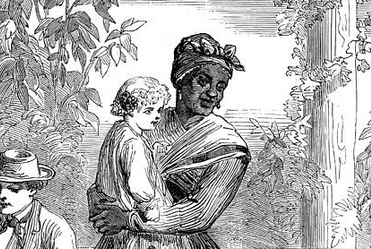Andrew Anglin
Daily Stormer
February 20, 2014
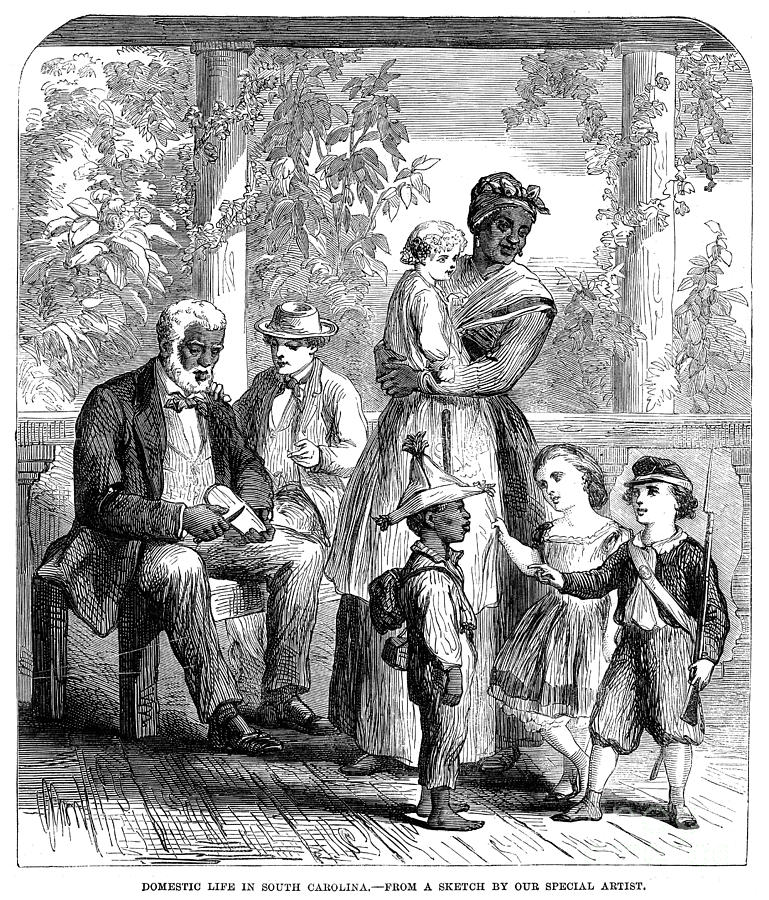
Sometimes you don’t ever think of a thing, but when you hear it, it is obvious. This is the way it was for me, coming across the real narratives of slaves, which prove that black people in fact loved slavery, and regretted that it ever ended.
While never believing the idiotic Hollywood gibberish about how all the masters abused their black staff for no reason, I suppose I just took it for granted that blacks would have preferred freedom over slavery, and the whole thing was a bit unfair to them. Now that I have come across this information, it makes perfect sense that they would have felt comfortable and satisfied living as slaves.
Clearly, as slaves, they had things that they never would have had otherwise. For one, they had a stable family structure. They were treated like children – but children that were loved, a part of the family – and the masters made sure that they married and stayed together. They were also given order, and knowledge of the joys of a hard days work. The comfort that they had living in houses built by Whites was something they never would have had if they hadn’t been slaves.
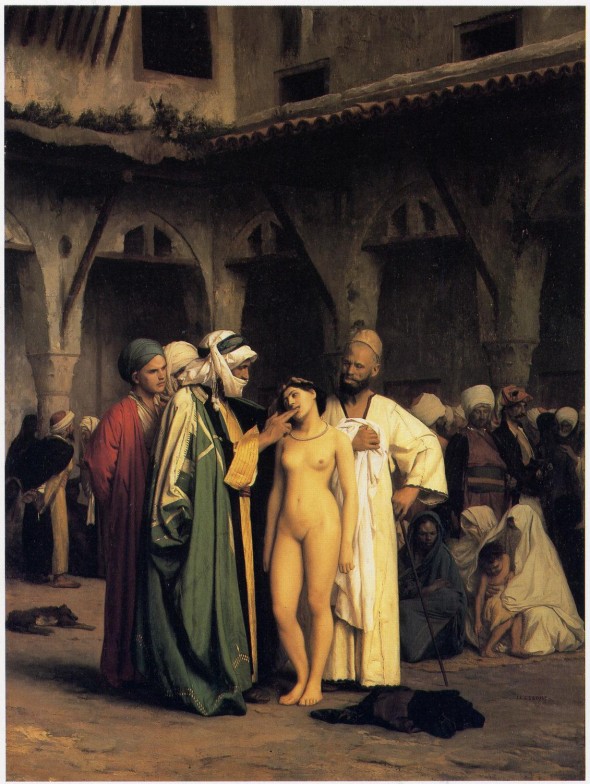
During the depression, some folks got the idea to go down to the South and record the narrative of the last living slaves, and George P. Rawick compiled these narratives into a 19-volume collection called The American Slave: A Composite Autobiography.
These are excerpted from that work.
Patsy Mitchner, age 84 when interviewed on July 2, 1937:
Before two years had passed after the surrender, there was two out of every three slaves who wished they was back with their marsters. The marsters’ kindness to the nigger after the war is the cause of the nigger having things today. There was a lot of love between marster and slave, and there is few of us that don’t love the white folks today.
[…]
Slavery was better for us than things is now, in some cases. Niggers then didn’t have no responsibility; just work, obey, and eat.
LBetty Cofer, age 81:
The rest of the family was all fine folks and good to me, but I loved Miss Ella better ’n anyone or anything else in the world. She was the best friend I ever had. If I ever wanted for anything, I just asked her and she give it to me or got it for me somehow.
[…]
I done lived to see three generations of my white folks come and go and they’re the finest folks on earth.
Adeline Johnson, age 93:
That was a happy time, with happy days.
[…]
I’ll be satisfied to see my Savior that my old marster worshiped and my husband preach about. I wants to be in heaven with all my white folks, just to wait on them and love them, and serve them, sorta like I did in slavery time. That will be enough heaven for Adeline.
Mary Anderson, age 86:
I think slavery was a mighty good thing for Mother, Father, me and the other members of the family, and I cannot say anything but good for my old marster and missus, but I can only speak for those whose conditions I have known during slavery and since. For myself and them, I will say again, slavery was a mighty good thing.
Simuel Riddick, age 95:
My white folks were fine people.
[…]
I haven’t anything to say against slavery. My old folks put my clothes on me when I was a boy. They gave me shoes and stockings and put them on me when I was a little boy. I loved them, and I can’t go against them in anything. There were things I did not like about slavery on some plantations, whupping and selling parents and children from each other, but I haven’t much to say. I was treated good.
Sylvia Cannon, age 85:
Things sure better long time ago then they be now. I know it. Colored people never had no debt to pay in slavery time. Never hear tell about no colored people been put in jail before freedom. Had more to eat and more to wear then, and had good clothes all the time ’cause white folks furnish everything, everything. Had plenty peas, rice, hog meat, rabbit, fish, and such as that.
Note that the word “nigger” is used simply to denote the race of the blacks, they use it themselves – it was just what they were, as they are now “black.” It was never necessarily mean or disrespectful. It was social engineering that transformed it into a hate word.
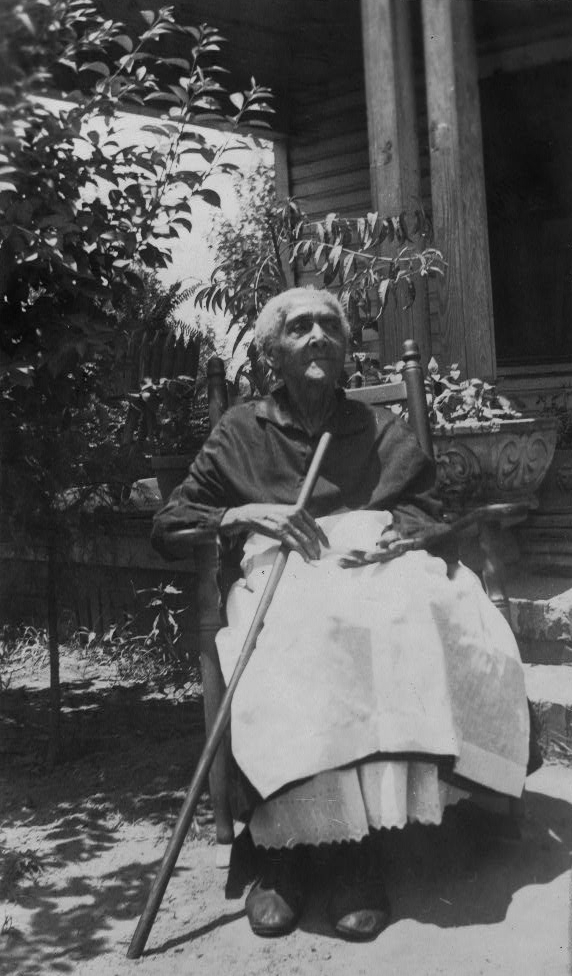
Finally, here is the account of Tempe Herndon Durham, which I will post a bit more of it, as it is so touching (especially the wedding). It is from the book American Slave: North Carolina Narratives (p284-290):
I was thirty-one years ole when de surrender come. Dat makes me sho nuff ole. Near bout a hundred an’ three years done passed over dis here white head of mine. I’se been here, I mean I’se been here. ‘Spects I’se de oldest nigger in Durham. I’se been here so long dat I done forgot near ’bout as much as dese here new generation knows or ever gwine know.
My white fo’ks lived in Chatham County. Dey was Marse George an’ Mis’ Betsy Herndon. Mis Betsy was a Snipes befo’ she married Marse George. Dey had a big plantation an’ raised cawn, wheat, cotton an’ ‘bacca.
[…]
When I growed up I married Exter Durham. He belonged to Marse Snipes Durham who had de plantation ‘cross de county line in Orange County. We had a big weddin’. We was married on de front po’ch of de big house. Marse George killed a shoat an’ Mis’ Betsy had Georgianna, de cook, to bake a big weddin’ cake all iced up white as snow wid a bride an’ groom standin’ in de middle holdin’ han’s. De table was set out in de yard under de trees, an’ you ain’t never seed de like of eats. All de niggers come to de feas’ an’ Marse George had a for everybody. Dat was some weddin’. I had on a white dress, white shoes an’ long while gloves dat come to my elbow, an’ Mis’ Betsy done made me a weddin’ veil out of a white net window curtain. When she played de weddin’ ma’ch on de piano, me an’ Exter ma’ched down de walk an’ up on de po’ch to de altar Mis’ Betsy done fixed. Dat de pretties’ altar I ever seed. Back ‘gainst de rose vine dat was full or red roses, Mis’ Betsy done put tables filled wid flowers an’ white candles. She spread down a bed sheet, a sho nuff linen sheet, for us to stan’ on, an’ dey was a white pillow to kneel down on. Exter done made me a weddin’ ring. He made it out of a big red button wid his pocket knife. He done cut it so roun’ an’ polished it so smooth dat it looked like a red satin ribbon tide ‘roun’ my finger. Dat sho was a pretty ring. I wore it ’bout fifty years, den it got so thin dat I lost it one day in de wash tub when I was washin’ clothes.
Uncle Edmond Kirby married us. He was de nigger preacher dat preached at de plantation church. After Uncle Edmond said de las’ words over me an’ Exter, Marse George got to have his little fun: He say, ‘Come on, Exter, you an’ Tempie got to jump over de broom stick backwards; you got to do dat to see which one gwine be boss of your househol’.’ Everybody come stan’ ‘roun to watch. Marse George hold de broom ’bout a foot high off de floor. De one dat jump over it backwards an’ never touch de handle, gwine boss de house, an’ if bof of dem jump over widout touchin’ it, dey won’t gwine be no bossin’, dey jus’ gwine be ‘genial. I jumped fus’, an’ you ought to seed me. I sailed right over dat broom stick same as a cricket, but when Exter jump he done had a big dram an’ his feets was so big an’ clumsy dat dey got all tangled up in dat broom an’ he fell head long. Marse George he laugh an’ laugh, an’ tole Exter he gwine be bossed ‘twell he skeered to speak less’n I tole him to speak. After de weddin’ we went down to de cabin Mis’ Betsy done all dressed up, but Exter couldn’ stay no longer den dat night kaze he belonged to Marse Snipes Durham an’ he had to go back home. He lef’ de nex day for his plantation, but he come back every Saturday night an’ stay ‘twell Sunday night. We had eleven chillun. Nine was bawn befo’ surrender an’ two after we was set free.
[…]
Freedom is all right, but de niggers was better off befo’ surrender, kaze den dey was looked after an’ dey didn’ get in no trouble fightin’ an’ killin’ like dey do dese days. If a nigger cut up an’ got sassy in slavery times, his Ole Marse give him a good whippin’ an’ he went way back an’ set down an’ ‘haved hese’f. If he was sick, Marse an’ Mistis looked after him, an’ if he needed store medicine, it was bought an’ give to him; he didn’ have to pay nothin’. Dey didn’ even have to think ’bout clothes nor nothin’ like dat, dey was wove an’ made an’ give to dem. Maybe everybody’s Marse and Mistis wuzn’ good as Marse George and Mis’ Betsy, but dey was de same as a mammy an’ pappy to us niggers.
So to sum up…
This is what Hollywood says slavery was like:
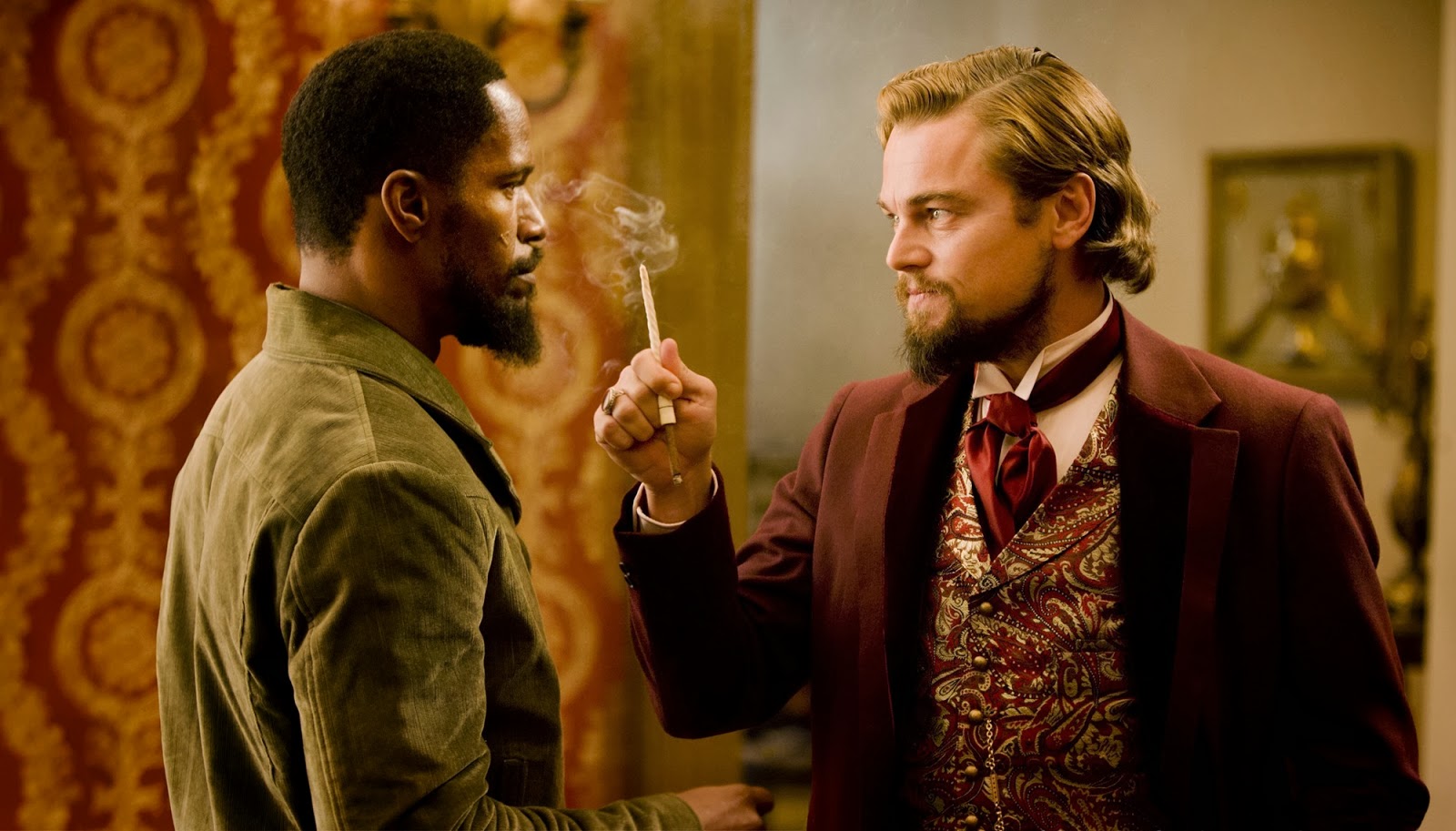
This is what Slavery was actually like:
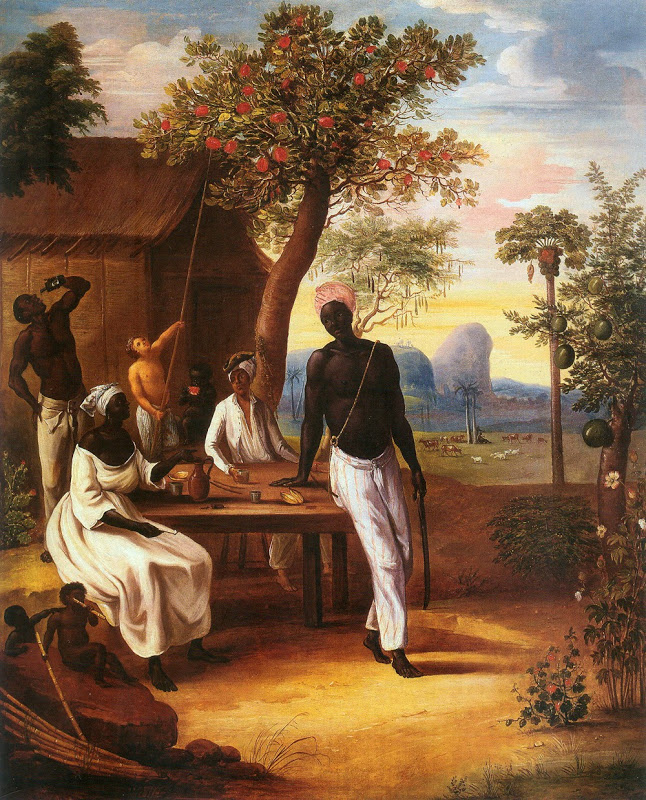
Slaves: “Oh, we be plannin on dat marster. We just nees to finish up this rum, an this conversation bout our favorite types of colors.”
Master: “LMAO you people are so lazy LOL.”
The whole thing is something of a revelation for me personally. I have never hated black people, and I don’t now. When I meet them in public, if there are not a whole bunch of them, I get along with them well. My problem with blacks is that I have come to understand that their biological nature is incompatible with White society, and that we will never have peace as long as they are among us, given that irrational outbursts of brutal violence are a part of their nature.
These accounts of happy slaves, who loved and were loved by their masters, really touched me. I don’t think there is any way we could ever bring back this healthy, symbiotic relationship between our two races, as that is an age dead and gone, but I feel for the blacks and the loss of this position in which they felt appreciated and content. It is much more their loss than it is ours.
Though I won’t go so far as to make this statement definitively, I must say that in many ways, it seems that black slavery was a form of Christian charity, giving meaning and peace to a people who would otherwise find none, coming from that dark and barbaric continent.
Perhaps what we need is a domineering black woman to be on TV as the Anti-Oprah, presenting the solution to the problems of the black community as a return to slavery.
